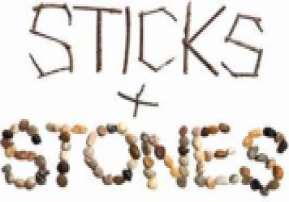
Tazria Metzora: Sticks and Stones
'Sticks and stones may break my bones but words will never hurt me'. If you believe that, I have a bridge to sell you...

Sticks and stones may break my bones but words will never hurt me. If you believe that, I have a bridge to sell you. Sure it sounds good, but everyone knows it’s not true. While physical injuries heal over time, painful words become an indelible part of our memory. Whereas the secular world may try to fool and excuse itself by coming up with cute catch phrases like the one above, the Torah makes no attempt to hide the horrific effects of lashon hara, slander and gossip. In fact, in the days of our ancestors, one who spoke lashon hara not only hurt others but they themselves became covered with a repulsive skin disease. Sticks and stones were the least of their problems.
These two parshot, Tazriah and Metzura detail the various halachot, laws, dealing with tzaraat, a disease resulting in the contamination of the body and a mandatory quarantine from the Jewish people. Says the verse, “… A person has a white blotch, discoloration, or spot on the skin of his body… it is suspect of being a mark of the leprous curse on his skin" (Vayikra 13:2). Later, in Parshat Metzura, we read how this plague can also affect the walls of a person’s home and his clothing
The Gemara (Arachin 15b) states, “Whoever speaks lashon hara will be smitten with plague-spots, as it is written, ‘Whoever secretly slanders his neighbor will I cut off totally (atzmis)’ (Tehillim 101:5) "Atzmis means ‘total’, as the gossip’s leprosy is confirmed forever.” The Torah is extremely strict in regard to the gossiper, as he is considered more impure than someone who came in contact with the dead! He isn’t fit to enter the Israelite camp as it says, “He must remain alone; his place is outside the camp" (Vaykira 13:46).
In our day, slander, gossip, and speaking badly about others is so common place, that most of us don’t even recognize it. Those of us who do recognize loshon hara are often unaware of it definition and effects. By understanding more about lashon hara, we can understand why the Torah punishes perpetrators so severely, and how detrimental it is for us.
The saintly Chofetz Chaim devoted him most famous works to the subject of loshon hara. In sefer Chofetz Chaim, he defines lashon hara as “information that is either derogatory or potential harmful to another individual. A derogatory statement about someone is loshon hara, even if it will defiantly not cause that person harm. To focus on the shortcomings of another person is in itself wrong" (Sefer Chofetz Chaim, p. 50).
The most famous case of someone who contracted tzaraat as a result of speaking loshon hara was Miriam, Moshe‘s (Moses’) sister. In Hilchot Tumat Tzoraat, the Rambam writes, “…Concerning this, the Torah warns us to be careful…Contemplate what happened to Miriam the Prophetess when she spoke against her brother who was younger than her, whom she brought up on her lap, and for whom she endangered herself to save him from the sea, and whom she had no intention to harm. She erred only in comparing him to the other prophets and (Moshe) did not care about what she said because (he) was a very humble person, and still she was immediately punished the tzaraat.”
If Miriam the Prophetess was punished for speaking loshon hara, it is obvious that most of us, lacking the knowledge and discipline to guard our tongue properly, are in serious trouble. Why then is it more common that a gossiper today suffers from acne than tzaraat? Is tzaraat, like small pox, a disease of the past?
It is foolish to assume that this generation is immune to the consequences of lashon hara. Rather, the fact that none of us exhibit the physical malady is an expression of God’s kindness to us. In Parshat Tazria, the Torah informs us that a person is cured from tzaraat through various ritual acts and sacrifices brought by a kohen. Since we do not have the Beit HaMikdash, these Karbonot (Offerings) cannot be offered, and thus anyone today who contracted tzaraat would be condemned to the disease for life. For that reason, after the Temple was destroyed, God spared us from contracting the physical plague. Yet we do not get off this easy.
The Chofetz Chaim explains that the horrific skin condition is just the physical manifestation of a far more severe spiritual blemish that one contracts from speaking loshon hara. Although today we do not see the physical malady, our soul is still affected. This is exemplified by the Midrash. Rabbi Yannai states, “He who guards his mouth and tongue guards his soul from tzaraat" (Let them Serve Me, the Chofetz Chaim on Chumash Vayikra pg 64). We must be careful about what we say. Yet in our generation when gossip is so pervasive, the severity of this sin seems minimized.
So just how bad is loshon hara? The Talmud Yerushalmi says that there are three sins for which man is punished in both this world and the next: immorality, murder, and idolatry. Loshon hara is equal to all three.” These three sins represent the destruction of man’s physical, emotional, and spiritual self. Yet the totality of the human being is destroyed by the corruption of his ultimate distinction, his speech.
If words were currency, the modern world would resemble the financial crises of 1929. Words have been devalued to such an extent that they are virtually meaningless. People can talk for hours and say nothing! Our celebrities and politicians are full of hot air. To hear an inspiring speech or some meaningful words is the exception rather than the norm. A person holding to his words is commendable, rather than expected.
By understanding the vicious punishments that are inflicted on those who speak loshon hara, we can begin to grasp the importance of our words. In truth, our words are the essence of our humanity. We are the only members of Creation that possesses the ability to speak. Rabbi Zev Leff explains, “When man uses his unique power of speech to unite the world in service of God, he realizes his potential as the pinnacle of creation. The Hebrew word for tongue, lashon, is related to lash, the process of mixing solid and liquids together. The tongue takes the spiritual inner essence of the soul and expresses it in the physical realm — thereby mixing spiritual and physical together" (Outlooks and Insights).
The Chofetz Chaim says that words can literally create reality. One who confirms something negative about another person makes that negative perception true for those who hear him. Conversely, one who uses speech properly, “…can affect miracles. Words of encouragement can dispel despair, even for someone in a terribly difficult situation. Words have the power to take what is ordinary and make it holy. They turn a glass of wine in Kiddush, a load of bread into an offering, a man and woman into a couple united through the sanctity of Jewish marriage. But more than anything, words are the sole medium through which the Jew fulfills the purpose for which he was created–to communicate the Almighty’s greatness and presence in the world" (Chofetz Chaim’s introduction to Sefer Chofetz Chaim).
Alas, the phrase about sticks and stones is antithetical to Torah. Whereas that phrase minimizes the effects and the power of our words, the Torah shows that they are our greatest possession and most powerful instrument in the service of the Almighty. Rabbi Aryeh Kaplan writes “The Baal Shem Tov taught that every individual could attain a strong personal relationship with God. Rebbi Nachman expanded this concept, teaching that the most powerful method to attain such a relationship with God is a personal prayer in one’s own native language" (Aryeh Kaplan, Jewish Meditation).
In the same way a car enthusiast wouldn’t drive his new Ferrari through the mud and off a cliff because he recognizes the value of his car, so too must we strive to recognize the inherent value of our words and treat them accordingly. Our words are our bridge with the Almighty, and the way that we can build a relationship with Him and with the world around us. They are more precious than jewels because, rather than enhance our exterior, they form the essence of who we are. That is why God punishes us so severely for wasting or misusing our words; He is forcing us to recognize their tremendous importance.
In this day and age, we must work harder than ever to learn the significance of our words and strive to use them properly. Those of us who manage to do this will find the greatest reward. As we know, the more scarce a commodity, the more valuable. Maximum accomplishment in this world isn’t waiting at the end of some rainbow; it is closer to us than the air we breathe. From within, we possess the tool (the tongue) to elevate ourselves to the heights or plunge ourselves into the depths of physicality and despair. May we all be able to recognize the infinite value of our words, and use them accordingly for the elevation of ourselves and the world.


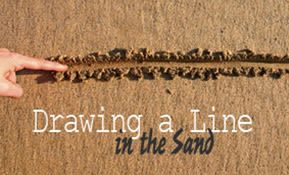



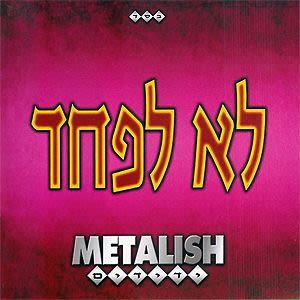
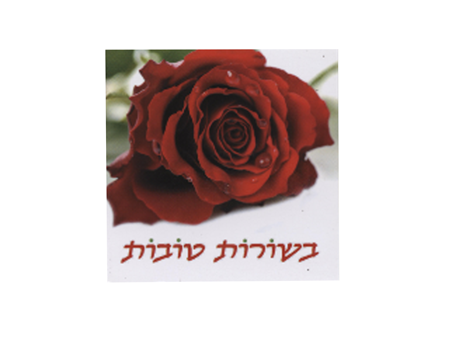

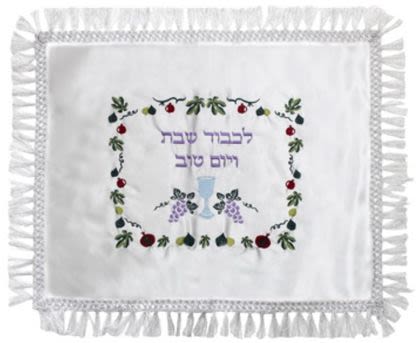
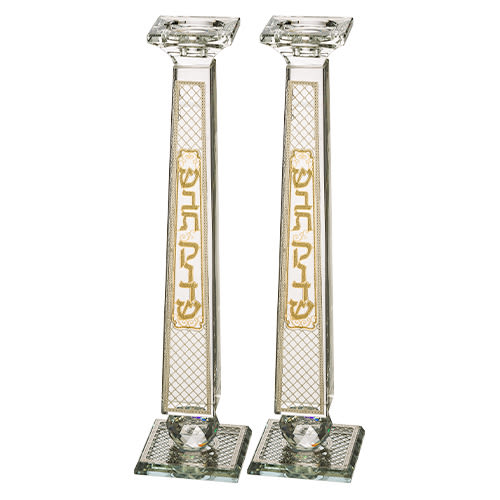
Tell us what you think!
Thank you for your comment!
It will be published after approval by the Editor.